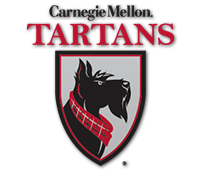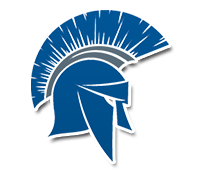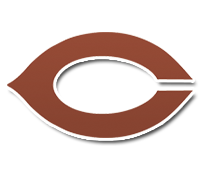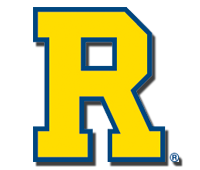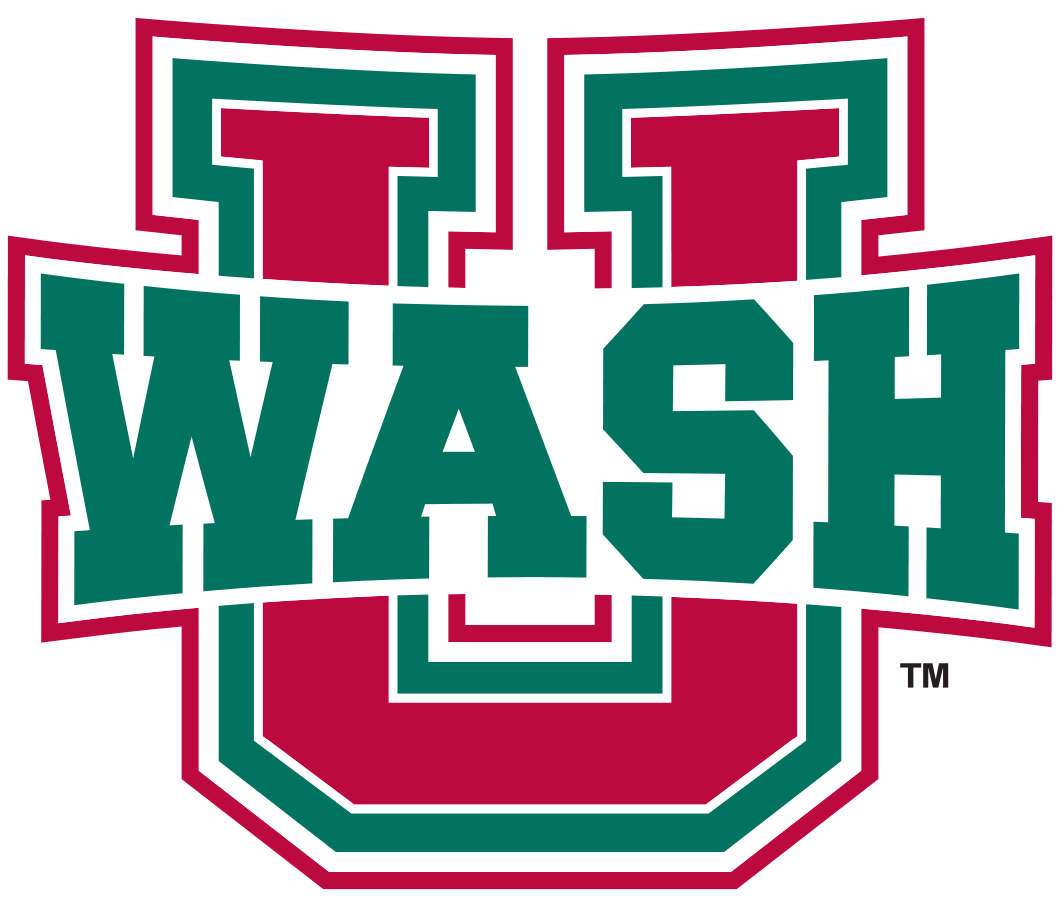
Brandon Roberts has always believed there was a greater purpose to his life.
"Life is about leaving a mark," the 2003 Washington University graduate said. "I work in health care and I see how life can change or end in an instant. I am about living life to the fullest. I am concerned with the legacy I leave behind."
The legacy he left at his alma mater is unforgettable. "He is the epitome of what you want in a student-athlete," said Washington University head football coach Larry Kindbom. "He is top of the line. I would follow that man. He is the consummate leader."
At the conclusion of his playing career in 2002, he became the first NCAA Division III recipient of what is widely recognized as the "Academic Heisman" award, which was then called the Vincent DePaul Draddy Trophy. Each year, the National Football Foundation gives the award, now called the William V. Campbell Trophy, to the top scholar-athlete across all divisions. He is still the only Division III student-athlete to win the award.

Photo: Brandon Roberts with the "Academic Heisman" award
Roberts remembers the time vividly. "I was there with a number of finalists that I used to watch on television," he stated. "I remember at dinner the night before, we were told 'One of you is going to be giving a speech tomorrow night.' I didn't prepare anything, not thinking that I was going to win. Then they called my name and I was thinking what to say as I went up there. It was amazing."
What made the honor even more special was that his senior season was cut short by a devastating injury on a seemingly benign play. "We were in a real war with Trinity University and he tore his ACL," Kindbom recalled. "I have never forgotten that moment. He looked at me and said, 'Coach, God would never give me something that I could not handle.' That is the way he always carried himself and still does."
"The play before I got hurt, they caught us on a blitz. I ran like 100 yards to make a tackle at the goal line," Roberts said. "I remember exactly what happened because I gave my all on the play before the injury."
Roberts started playing at age 8 at the Pee Wee Football level in his hometown of Akron, Ohio. "I went to a boarding school my first two years of high school, but I wanted a more normal high school experience," he said. After transferring to Archbishop Hoban High School, Roberts started playing a lot of football. The program, which is now a powerhouse in the area, was up and coming at the time. He, like many of his teammates, played both sides of the ball. As a junior, he played defensive end and on special teams after growing up as a running back and linebacker. In his senior year, he also started at offensive guard though he was not very big at 5’9” and 195 pounds. "I was hesitant about playing guard, because I grew up playing more glamorous positions,” he recalled. "I pulled and trap blocked a lot, so playing guard was actually a lot of fun"
Roberts was looking at schools like Xavier University, Kent State University, and Duquesne University with no intention of playing football in college. He also had an eye on Washington University. "They do a great job of correspondence. I received mail very early in my high school career from them," he remembered. "I also had a cousin two years ahead of me at Wash U, and she loved it. I don't know how Coach Kindbom found me as I was under the radar, but I am glad he did."
"He was a very academic kid who wanted biomedical engineering," Kindbom said. "He was willing to give up playing football to do so. He had a full scholarship at Xavier and would have been in the honors program at Kent State. He narrowed it down to a couple schools and we were blessed he chose us. He is the kind of person who researches everything. He researched us and saw us as the perfect fit."
The new recruit was small for a defensive lineman so Kindbom moved him to linebacker, where he made an impact immediately. "He helped lead us to the playoffs. We had two incumbent linebackers and our middle linebacker (Darrell Butler) was very good, but Brandon garnered more and more playing time each game," Kindbom said. "He was sensational on a strong and healthy team competing at the highest level."
"I was physically weak when I first got there. When a defensive lineman and two linebackers picked me up from the airport for football camp, I thought to myself, 'I might be in over my head,'" Roberts commented. "Once I put on the pads I was fine. I was quick, and I had heart and self-confidence. I believe I can do anything I put my mind to, which is rooted in my faith." He began football camp as a freshman as a fifth string linebacker, but quickly moved up the depth chart to second on the middle linebacker depth chart, behind his good friend Butler.
He went on to have a stellar career for the Bears, earning first team All-Association honors in 2000 and 2001. Roberts was awarded a "Special Coaches Recognition" honor in 2002, recognizing that he would likely have received UAA honors again that season had he not been injured before UAA play began.
Kindbom introduced Roberts when the latter was inducted into the Washington University Athletics Hall of Fame earlier this year. "He is the best linebacker I have ever coached. He was a baller, an absolute football player. He was a 'shoulders square, put guys on their back, froth at the mouth kind of player.'" Kindbom said. "It was great to hear (at the induction ceremony) about the things that were important to him. He went in because he was an athlete, but you listen to him and his being a great football player is an asterisk." (Watch Roberts' Hall of Fame induction here)

One of the things Kindbom remembers most about Roberts' senior year had nothing to do with his play on the field. "He had a class that prevented him from being able to practice on Thursdays," he recalled. "He would come after his class and give a pep talk to the team. Each one was as great as a motivational speech in an auditorium. He just took over and made it his thing."
The balance between athletics and academics was something that Roberts believed high school prepared him well for. "I was always career-oriented," he commented. "I started volunteering in hospitals in high school. It seemed like everyone was pre-med coming into Wash U. I stuck with it and I remember starting off well, earning a 4.0 my first semester while playing football. As a UAA student-athlete, you have to find a way. I would go to the library on Saturday nights after games sometimes. I knew what sleep I needed to thrive and survive."
With his biomedical engineering degree from Washington University, Roberts knew he would have options for medical school, but his choice turned out to be an easy one. "I loved it when I interviewed at Case Western Reserve," he said. "I liked the people and the system, and it was a perk being closer to home." He made the most of that perk. "I used that support system a lot, doing laundry and eating regularly at my mom's house," he laughed. "Sometimes she would cook for my classmates too. I have a lot of friends from my days at CWRU. Between the location, program, reputation, and the hospitals, you couldn't beat it."
Another benefit of attending CWRU was they allowed Roberts to defer medical school for one year. "I was tired of going hard as a student athlete at Wash U" he said. “I was ready to take a break before med school, and I knew when I was applying to med school that I wanted to defer." KeYanna (now his wife) and I had a great time with our friends during graduate school and the memories are second to none."
Although he did not attend medical school right after graduating, Roberts kept extremely busy in the year between schooling. He learned about the National Football Foundation's "Play It Smart" program when he won the NFF's student-athlete honor. "I remember asking him about it," Kindbom said. "He said he was giving back because they had given him the award and that he would be helping kids. I wondered 'Is he real?!"
As part of the program, Roberts served as an academic coach and mentor at Vashon High School in St. Louis. He also coached defense for the school's junior varsity football team and served as an assistant coach for the varsity program. "I tutored some athletes and got them involved with community service events. It was a great way to decompress.," Roberts stated.
Community service has always been a priority for Roberts. "You always want to step out of yourself and work with those who are less fortunate," he commented. "God has given me the abilities to do a lot of things and pursue those gifts. When you are blessed like that, you are obligated to help others."
While finishing up medical school at CWRU, Roberts was seeking the right place for his residency and for the longest time, it seemed to be at the University of Michigan. "I interviewed at Wash U late. I always liked the St. Louis area and we knew the area well from our undergraduate years. That was important because we got married during my last year of medical school," he said. "The Wash U anesthesia program is amazing and the patient population prepared me tremendously for the world of anesthesia. All along this ride, I have been matched with places that have worked extremely well for me."
His job search after his residency centered around St. Louis, Chicago (his wife’s hometown), and Ohio. Dayton, Ohio turned out to once again be the perfect match for Roberts and his wife. "There are a lot of opportunities here. I have family in the area, the city is filled with great people, and it is just three hours from my hometown."

Photos: Brandon Roberts and his wife KeYanna
Kindbom was not surprised at the reasons why Roberts chose anesthesiology. "I remember he came to my office and said to me, 'You always talked about God, family, football, and career. I want to have specific hours. This is how I want to build my family.' That is just who he is."
Roberts works as a pediatric anesthesiologist at Dayton Children’s Hospital. "It makes it more fulfilling for me to take care of children. To get them and their families through stressful situations is where I need to be," he said. I like the dynamic of making families comfortable. It is a perfect fit for my personality."
Many years ago, Roberts was given a quote from his pastor, which has become one of his guiding principles: "If I can help someone as I pass along; If I can cheer someone with a word or song; If I can show someone that they are traveling wrong, then I'll know that my living has not been in vain."
Little did Roberts know at the time how important that quote would be for he and his wife as they dealt with their own tragedy in 2011. "We lost our first daughter with congenital issues. We had to bury our first child, which was extremely difficult," he said. "Life keeps going on though. You mourn and you grieve, but you can't stop living because the world keeps revolving. Throughout my life when dealing with difficult times, I’ve always tried to remember that God will never put more on me than I can bear. That mindset has kept me strong and at peace.”
As he has done everywhere he has been, Roberts seeks to be an encouragement to those around him. "Life is about what you can do to help someone along their journey," he remarked. "That process is what makes life worth living. I am fulfilled in what I am doing in my career and in my personal life, but I am always looking to do more."

Photo: Brandon and KeYanna Roberts with their children
"Life is not that serious," Roberts concluded. "You have no idea what is in store. Enjoy the ride."
This story is the second in a season-long series called "30 for 30" in celebration of the 30th anniversary of the UAA.





